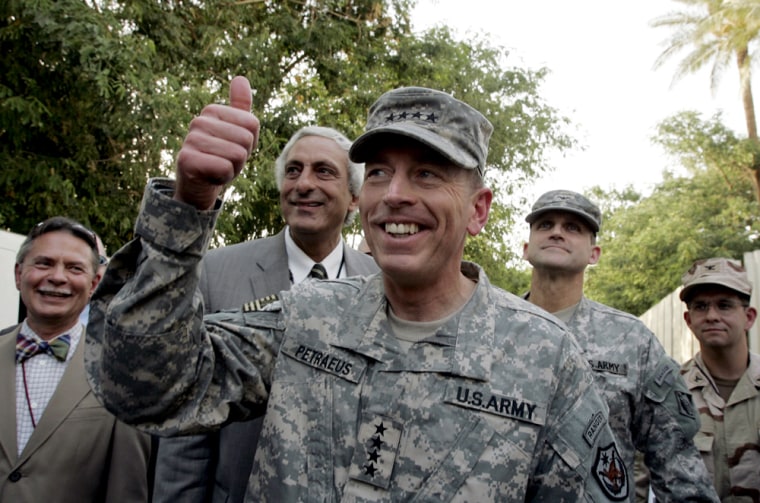With about a week to go before Gen. David Petraeus is scheduled to render his opinion of the conflict in Iraq, his evaluation is already written. Unless something dramatic occurs to produce a fundamental change in the strategic situation, nothing that happens between now and Petraeus' testimony will affect what he will report.
And it isn't difficult to predict accurately what he will deliver. He will say that things are much better in Anbar Province and in other areas where U.S. troops have conducted vigorous operations and stayed. The Iraqi armed forces are getting better, but they are improving more slowly than we would wish. The enemy is increasingly focused on Iraqi government forces and each other, rather than on Americans, with Shia gangs fighting both Sunni militias and each other for turf control. And, to great consternation but no surprise, he will say that a successfully democratized Iraq can be achieved, but it will take more resources and, most distressing to politicians, more time.
With the substance of his evaluation largely completed, he is most likely rehearsing his appearance before Congress and the media, where the impact of what he has to say will be dissected, analyzed and, distressingly, used for political purposes. And since we are in the throes of an election cycle, there are plenty of political purposes to satisfy.
Republicans seek distance from Bush, Iraq
There is no better gauge of Iraq's perceived importance as a campaign issue than the attempts by many Republicans to open some distance between them and the president's policy. In the past, most of them have been policy stalwarts but the steady stream of disappointing news from Iraq and the slow pace of progress have changed their minds.
Of course, there is little doubt that anybody, except perhaps Iran, is happy with our conduct of the war. We lost four long years pursuing a bankrupt strategy, and we used ineffective tactics and insufficient resources. It is only recently that we have begun fighting in a way that at least has some chance of ultimate success, although we never did have and will likely never have enough troops to make it work. So, lots of people are fed up with the meager results of our efforts there, including Republicans who were once ardently supportive of Bush’s policy. Everybody wants American policy to work, and nobody wants anything to do with a policy that fails.
But there's more at work here than honest concern. Remember that one-third of the Senate and the entire House of Representatives are up for election. More than 80 percent of Congress is running for office, and very few aspirants find it attractive to pin their hopes on unequivocal support of the war. In this context, virulently anti-war remarks while poorly considered from a variety of tactical and strategic standpoints, are hardly surprising.
Rhetorical questions
In this charged environment, Petraeus' testimony should afford an opportunity for politicians to establish themselves as knowledgeable and honorable contributors to the soundness of policy. Alas, that won't be the case.
It is a sad fact of political life that Petraeus' testimony will be marked by those emotion-laden, rhetorical questions that have no satisfactory answers, as anyone who has spent time on a contentious topic before a Senate panel will report. Expect queries like, "What do you tell a parent whose Marine son has been killed in Iraq?" and "Who wants to be the last American soldier to be maimed in Baghdad?" The obvious answers are "nothing" and "nobody," but that will not satisfy the inquisition.
So Petraeus will need to hone his theatrical skills as well as to master his facts, and since politicians already suspect what he's going to say, how he is received will be less a function of what he reports than how he reports it.
Jack Jacobs is an MSNBC military analyst. He is a retired U.S. Army colonel. He earned the Medal of Honor for exceptional heroism on the battlefields of Vietnam and also has three Bronze Stars and two Silver Stars.
